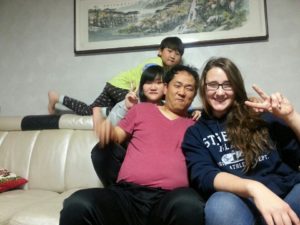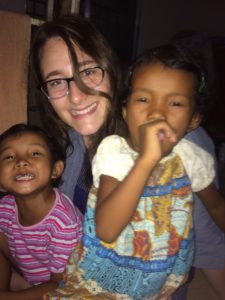“The statement should be a 1 page narrative that provides a picture of yourself as an individual․ It should deal with your personal history, family background, influences on your intellectual development, the educational, professional, and cultural opportunities (or lack of them) to which you have been exposed, and the ways in which these experiences have affected you․ Also include your special interests and abilities, career plans, and life goals, etc․ It should not be a recording of facts already listed on the application or an elaboration of your Statement of Grant Purpose․ It is more of a biography, but specifically related to you and your aspirations relative to the specific Fulbright Program to which you have applied․”
The simple exchange of “Hello, how are you today?” and “I am fine, thank you. And you?” between myself and the students to whom I teach English has become a precious ritual to me over the years. This seemingly mechanical interaction has been the starting point for much deeper relationships and communication between myself and my ESL students. Language education begins by learning such simple greetings and progresses towards communicating about interests, work, family, values, and culture. As both a language learner and teacher, “Hello, how are you?” has been the basis for the relationships I formed with people of completely different backgrounds from myself in Atlanta, Seoul, Beijing, and Phnom Penh, and also my ability to enable my students to communicate with others through English.

My Korean host family (2014)
My commitment to language-learning began when I spent a year in high school studying Korean in Seoul through a State Department scholarship program. Leaving my predominantly white Tennessee town to live with a host family in a completely unfamiliar country made me fall in love with language’s ability to give me access to new people and cultures. The moments I shared with my host family—laughing at my mispronunciations and charades—taught me that the process of learning languages is equally important to relationship-building and positively representing my country as language is itself.
When I started college, I continued my Korean studies and began learning Mandarin. I also began to explore the other side of language education: teaching. I was hooked after one week of teaching ESL to refugees during my first semester. I taught English to immigrants at a community center every Thursday evening. Together we laughed at our mistakes and discussed our backgrounds between activities, and I realized I had much more in common with them than I previously imagined as I shared my low-income background and they told me about their economic hardships. They told me about their struggles adjusting to US life and shared their triumphant moments speaking English, such as calling the plumber or making appointments. Seeing the connection between language and these immigrants’ livelihoods inspired my commitment to education for marginalized groups before I ever realized this was my path.

My students and myself in Phnom Pehn (2017)
In the words of my professor, I got the “ESL bug” from my first semester onward. I sought training in education for marginalized groups as an ESL instructor in lieu of Emory’s suspended Education Studies program. I drew on what was most effective in my language studies to inform my teaching practices, rejecting lecture-based teaching to focus on task-based learning, in-class discussions, and watching films to improve proficiency. I began tutoring ESL to international students and took an opportunity to teach an eight-week, self-designed ESL class while living at a drug rehabilitation center in Cambodia during the summer of 2017. The women I met had lived in the slums for years as addicts, and the Center in which they lived had no electricity, internet, or indoor plumbing. I came into the Center intimidated by my task, shocked by the systematic inequalities between myself and my students and overwhelmed by living so far outside of my comfort zone. These concerns faded as I formed relationships with the women and children. Like my experiences learning Korean with my host family and teaching ESL to immigrants, communication with these women began with simple greetings and grew to talk about food, our families, faiths, and hopes for the future.
My love of language stems from my desire to connect to other peoples and cultures. This desire has driven my academics and personal pursuits as well as my pursuit of a Fulbright English Teaching Assistantship. As an avid language learner and educator, I am excited to work as an ETA in Indonesia and continue to teach and learn from my students.